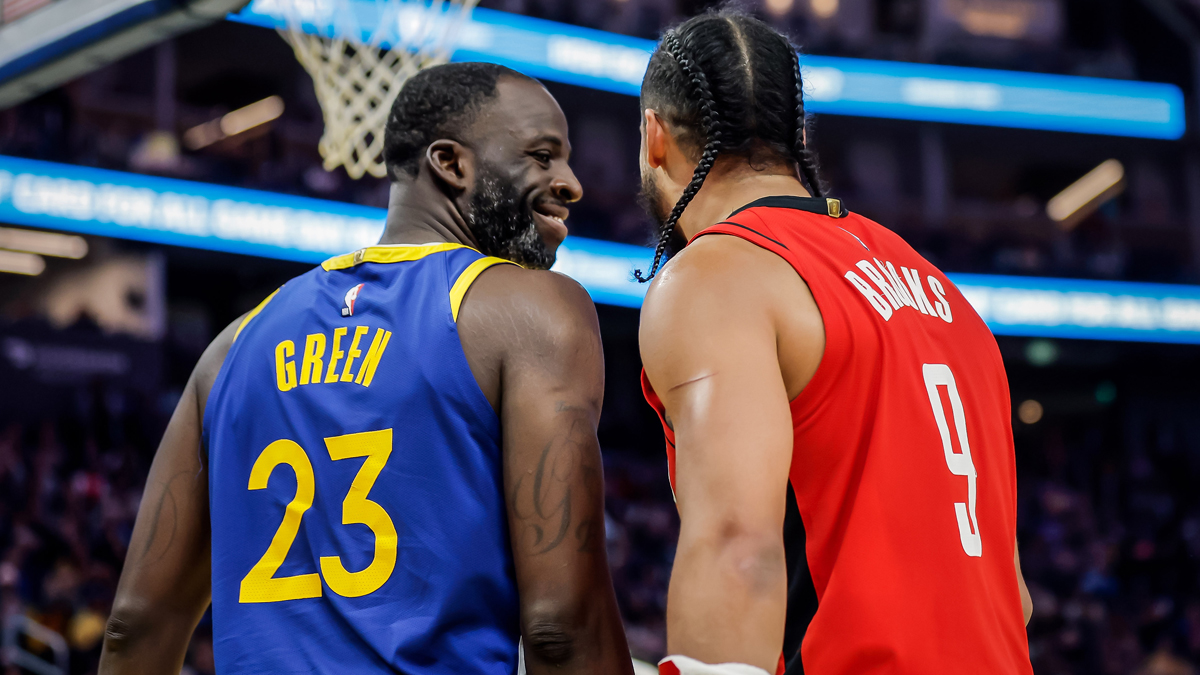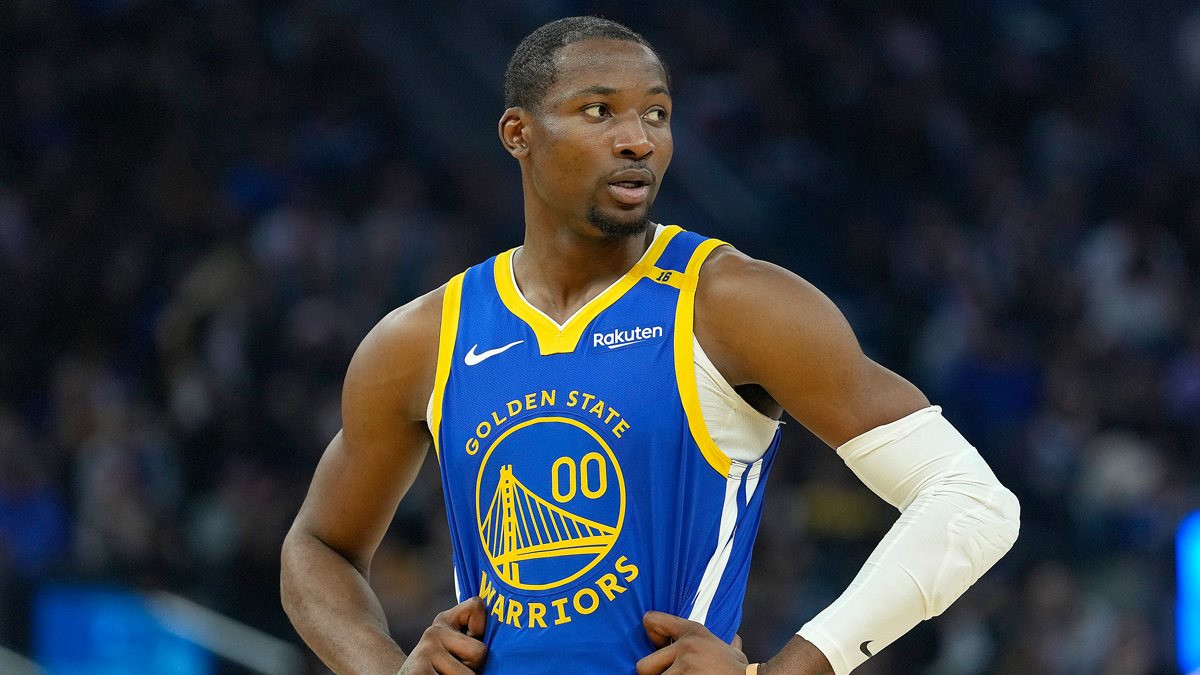He is quiet and shy. Unassuming. Always friendly and gracious. Delighted to be in the NBA, and really fortunate that it worked out for him.
This is how Chris Mullin describes Dennis Rodman. This is how the man known for his disciplined fitness routine portrays the man with a well-documented reputation as a raging party animal.
This is one of the all-time great shooters recalling his relationship with a man who barely could launch foot into his sock.
Stay in the game with the latest updates on your beloved Bay Area and California sports teams! Sign up here for our All Access Daily newsletter.
The warmth of his Mullin’s voice conveys an unmistakable fondness for Rodman, one of the high-profile Chicago Bulls featured in the ESPN documentary “The Last Dance.”
“Just a regular guy,” Mullin says, recalling a relationship that goes back to the 1980s, when he and Rodman entered the NBA one year apart but shared the same agent, Bill Pollak.
[RELATED: Rodman sees himself in Draymond]
When Mullin’s mother died 27 years ago, the surviving family received flowers and phone calls from all over the country. One of the bouquets temporarily stunned Chris.
Golden State Warriors
Find the latest Golden State Warriors news, highlights, analysis and more with NBC Sports Bay Area and California.
It was from Rodman.
“I got flowers from him out of nowhere,” Mullin recalls. “He’s a very sensitive, emotional guy.”
Rodman’s colorful persona was, in Mullin’s view, unlike the real Dennis.
“The tattoos, the outfits, the hair color, all that changed over the years,” he says. “But when someone asks me about Dennis, I go back to when I first met him. Sensitive and emotional. A really sweet guy.”
Though they never were teammates, the careers of Mullin and Rodman ran fairly parallel. Mullin was drafted in 1985 and retired after the 2000-01 season. Rodman entered one year later and exited for good in 2000, after being waived the Mavericks.
“People talk about defense and rebounding, but he also was a really good passer,” Mullin says. “He had a very high IQ. Whether it be screening angles, when to run the break or when trail the break ... drawing fouls. He had an incredible feel for the game.
“Wherever he played, he always fit right in, whether it was (Bulls) triangle or the Detroit half-court offense. That’s why (Pistons coach) Chuck Daly loved him. That’s why (Bulls coach) Phil Jackson went and got him. He could use his athleticism and freakish physical tools -- with a limited offensive skill set -- and make the team better. Not many people could do that without scoring, but he truly did that.”
[RUNNIN' PLAYS PODCAST: Listen to the latest episode]
Rodman led the NBA in rebounding three consecutive seasons (1991-94), dropped further down the top 10 for three seasons and finished first once again, in 1997-98, his final season in Chicago.
Mullin and Rodman were inducted into the Naismith Memorial Basketball Hall of Fame in 2011, which is the last time they shared company.
“He was all over the map that weekend,” Mullin said with a laugh. “But overall, his spirits were good. You saw the gamut of his emotions. He’s got this larger-than-life personality. He has a different personality that he shows people. Deep down, to me, he’s a very emotional sensitive guy.”
One more story. Mullin recalls the night in the early 1990s, when he was with the Warriors and Rodman was with the Spurs, that resulted in a brief but memorable car ride.
Hanging around the home locker room at the Oakland Arena, Rodman asked Mullin if he could hitch a ride to the team hotel, the Oakland Airport Hilton. No problem, according to Mullin, who lived in Alameda at the time.
One more thing. Rodman wondered if it was OK for a couple of his “buddies” to ride along. Just hang on, Mullin until I’m ready to leave.
“I had young kids then, so I had to move a couple car seats,” Mullin recalls. “No big deal. So, all these little white guys pile into my car. I’m like, whatever. It’s a five-minute ride. I was going to Alameda, so it was a short ride.
"Later, on, I find out it was Pearl Jam. At the time, they were called Mookie Blaylock. It was that group. They were (Rodman’s) boys back then.
[RELATED: Draymond, Rodman cut from the same cloth]
Some years later, shortly after Mullin retired, he got a call from Brent Barry, who was playing for the SuperSonics. Barry had become friends with Pearl Jam, which originated in Seattle as Mookie Blaylock, with 5-foot-7 Eddie Vedder as the lead singer.
“Brent says he with Eddie Vedder,” Mullin says. “I said, ‘Dude, ask him if I ever gave him a ride back to the hotel' [Vedder] said, ‘Yeah, that was us.’
“But that’s Dennis. That’s how he is. He was just a regular dude. And still is.”




